Hydrogen technology: Base for e-fuels
Hydrogen is one of the key elements in a decarbonized economy and also forms the basis for the production of various synthetic fuels like green methane, methanol, or ammonia through Power-to-X processes. Therefore, hydrogen technology will be crucial to decarbonize sectors wherever direct electrification is not possible, for example in shipping or aviation.

Hydrogen fuels
Hydrogen and its derivates offer the potential to substitute fossil fuels. You can use it to produce synthetic fuels for shipping, aviation and automotive, to decarbonize engine-based power generation or industrial processes or to heat your living rooms.
In short, hydrogen fuels can basically be used for all tasks currently performed by oil, coal, and gas in particular – but in a climate-neutral process.
Future-oriented hydrogen
technology
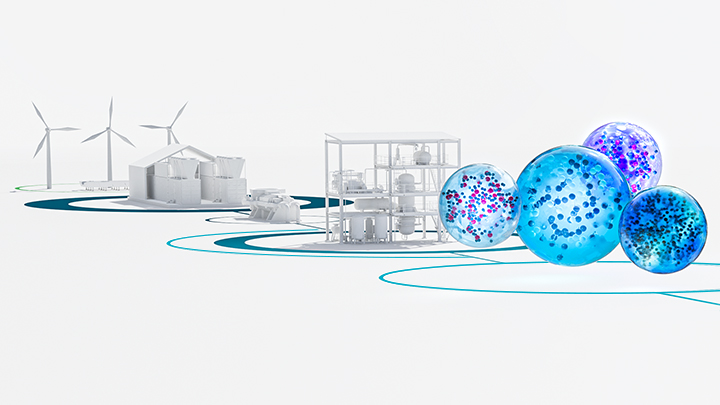
MAN Energy Solutions has comprehensive expertise in the production, transport, storage, and conversion of green hydrogen.
From PEM electrolysis to Power-to-X technologies and H2-ready engines: our portfolio covers the complete value chain of H2 from production to utilization. This puts us at the forefront of clean energy transformation.
Our Offerings for hydrogen technology
Energy transition with Quest One
The MAN Energy Solutions subsidiary Quest One develops and manufactures PEM electrolyzers, which convert renewable energy into green hydrogen. The acronym PEM stands for Proton Exchange Membrane, which is the preferred technology for green hydrogen production, through the splitting of water by electricity. This PEM electrolysis technology is specifically designed for the production of green hydrogen and is perfectly suitable for the integration of renewable energies, as it can react optimally to fluctuations in availability due to its high dynamics.
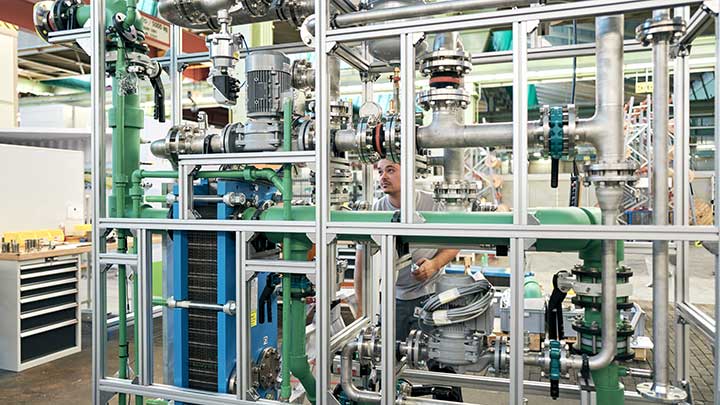
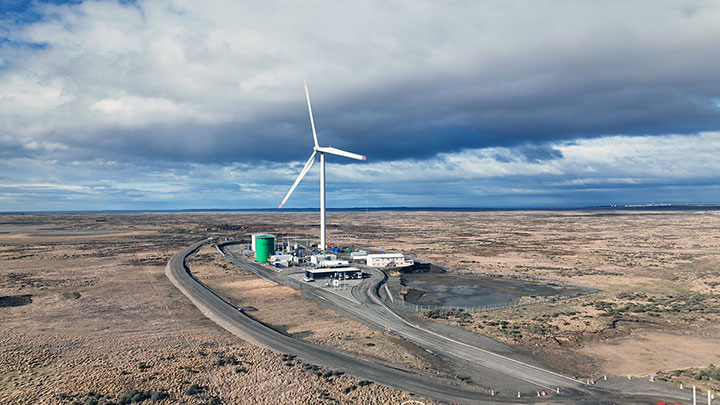
Production of e-fuels
As electrification is not applicable to all sectors of the transport system, solutions for the decarbonization of liquid and gaseous energy sources are needed wherever these fuels are hard to replace. Examples would be the aviation or maritime industry, where direct electrification e.g. via batteries – will not be viable for many years to come. Here, e-fuels produced by Power-to-X processes come into play.
Power-to-X describes the transformation of renewable electricity into hydrogen and other gaseous or liquid fuels which can be used in the existing energy system. Renewable fuels such as methane, methanol and sustainable aviation fuel produced from green hydrogen and captured CO2 unlock the decarbonization of sectors that are difficult to electrify.
MAN DWE® is the leading supplier of commercial-scale methanation reactors for the production of renewable natural gas from green hydrogen, as well as methanol synthesis units for renewable methanol production.
MAN Energy Solutions commissioned its first methanation reactor for a power-to-gas plant in Northern Germany in 2013. We also supplied the methanol synthesis unit for the Haru Oni methanol-to-gasoline plant in Southern Chile.
Usage of e-fuels in our green engines
Modern power plants already achieve efficiencies of over 90% when running on natural gas and using waste heat recovery. By gradually adding hydrogen, synthetic natural gas or other alternative fuels, the climate footprint can be reduced even further. Eventually, green hydrogen can be used for power generation and heat supply. In fact, admixtures of 25% hydrogen are already possible today in our gas engines. MAN Energy Solutions is also working on future concepts that will enable hydrogen fueling of up to 100% as soon as it becomes available in large quantities.
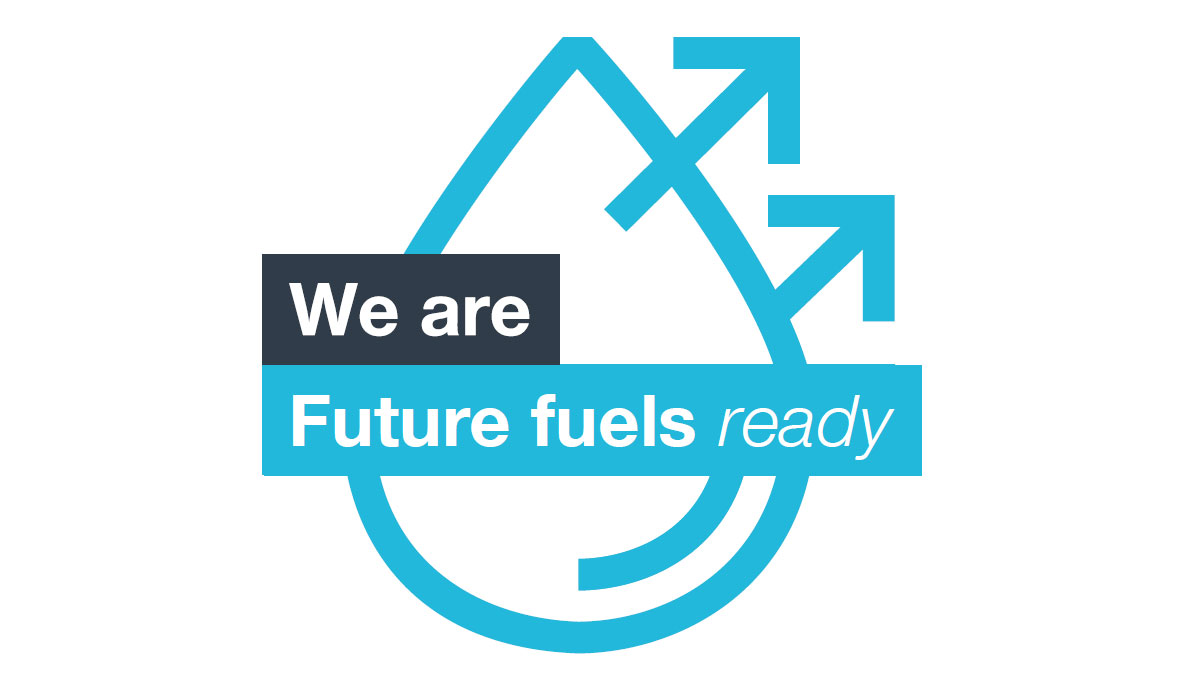
Get in touch with our experts
Would you like to learn more about hydrogen technology and how it best meets your needs?
Our global network of dedicated engineers is happy to determine the perfect-fit solution for you and your business. Start your change process toward carbon neutrality now and reach out to us today.
Frequently asked questions
What is hydrogen technology?
What is green hydrogen technology?
Are there different types of hydrogen?
Hydrogen is considered pivotal in the development of sustainable energy systems, the key to these solutions depends on how the hydrogen is produced. The most conventional method for producing hydrogen is steam reforming, where steam reacts with natural gas. The result is commonly known as “gray” hydrogen, which is emission-intensive and accounts for roughly 95 percent of all hydrogen produced today.
“Blue” hydrogen uses the same reforming processes as “gray” hydrogen, but employs carbon capture and storage technology to store CO2 emissions underground. Some advocates believe “blue” hydrogen could be a short-term solution to driving the hydrogen market. Critics, however, stress that the process is inefficient, energy intensive, costly and not green enough.
The production of “green” hydrogen through the electrolysis of water with electrical energy from renewable sources is entirely void of greenhouse gas emissions. This reaction takes place inside a unit called an electrolyzer, where water is split into hydrogen and oxygen. Electrolysis is the gold standard for sustainable hydrogen production, and industrial-scaled production plants can be expected as demand increases.
What are the challenges to overcome in the green hydrogen market?
The current challenges to a green hydrogen market are a lack of infrastructure and cost – two issues that often go hand in hand with the implementation of new technologies. In this case, however, both the demand and urgency to move toward a net-zero economy are driving the desire to overcome these issues. Already governments around the world are defining targets and creating budgets to build a hydrogen infrastructure, and as with renewable energy, decreasing costs for hydrogen technology and subsidies will make green hydrogen and e-fuels a realistic and viable solution for a sustainable world.
News about hydrogen solutions
-
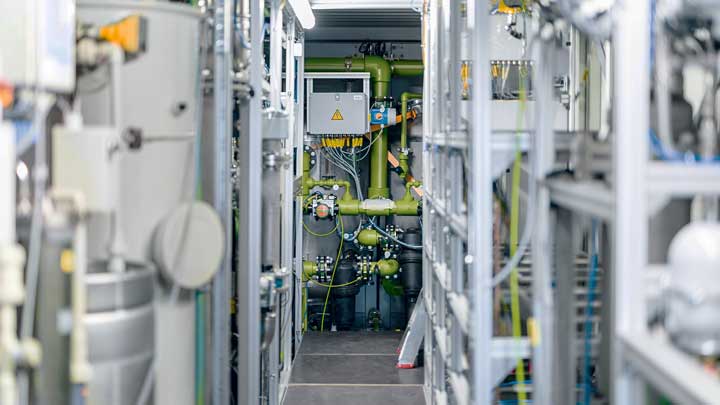
H-TEC SYSTEMS: The hydrogen electrolyzer pioneer
Under new leadership, PEM electrolysis pioneer H-TEC SYSTEMS is scaling up electrolyzer production to meet the growing demand for green hydrogen.
-
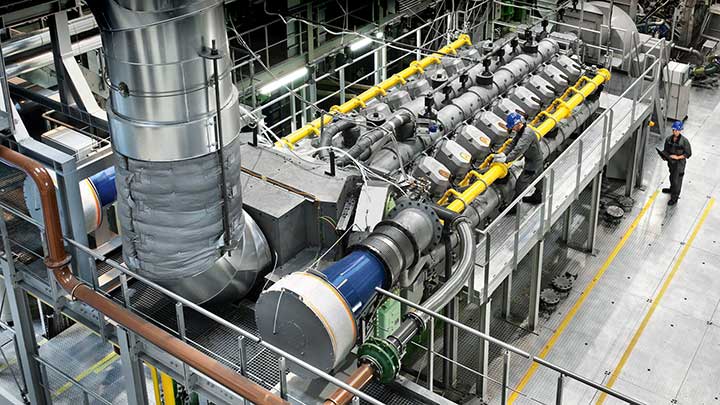
Buildung a hydrogen engine
MAN Energy Solutions expert Matthias Auer on developing hydrogen-capable, gas-fired engines for power plants.
Learn more about our hydrogen solutions
-
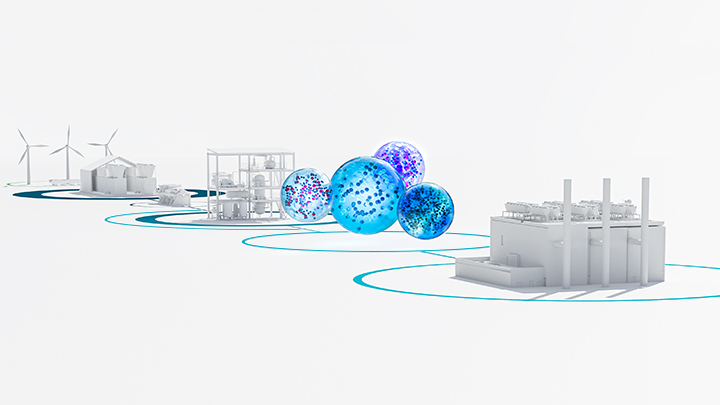
Hydrogen Value Chain
We at MAN Energy Solutions acknowledge the power of H2 and with our solutions and services, we are already covering all parts of the hydrogen economy today.
-
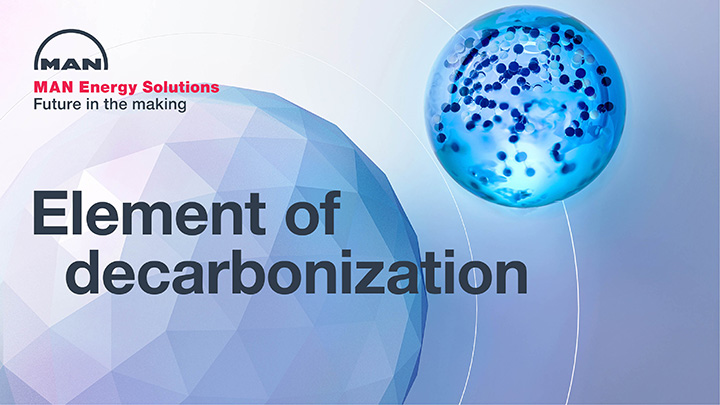
Hydrogen power solutions
Green hydrogen and its derivatives offer practical opportunities for process industries, transportation, and power generation. We have considerable experience.
Strategic expertise for global sustainability
In addition to our technology for electrolysis of hydrogen, which is a central element of our decarbonization technologies portfolio, we provide digitalization and core products made to last. Leveraging our extensive knowledge in these areas, we are charting the course towards a sustainable future.
